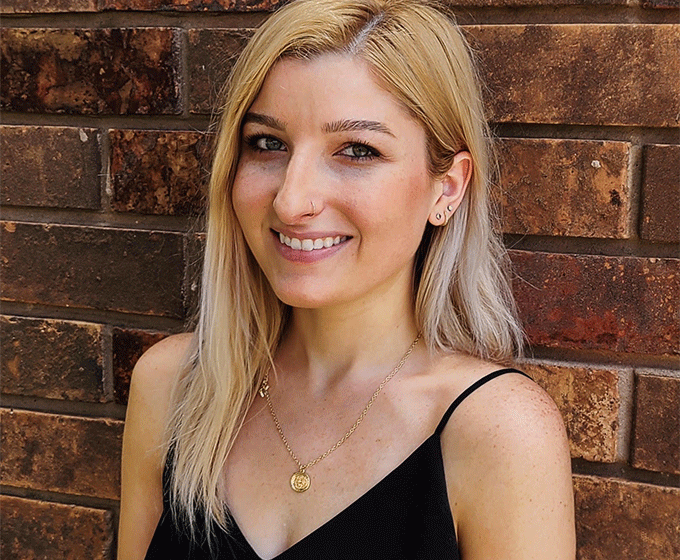
HARLINGEN — For Dr. Merridee Lefner, finding answers about the unknown through experiments and piecing together different bits of information is fascinating.
Throughout Lefner’s academic journey, she’s been following her desire to learn new concepts and continue making scientific discoveries.
This December, Lefner graduated from The University of Texas at San Antonio (UTSA) with a Ph.D. in neuroscience.
Lefner is a two-time graduate of UTSA and first graduated from the university in 2015 with a bachelor’s degree in biology.
While in secondary school, Lefner became interested in how the brain functions after her grandmother was diagnosed with Alzheimer’s Disease and saw its devastating effects.
“Because of that, I wanted to study how the brain works,” Lefner said. “When I got to UTSA, I was interested in taking a lot of neuroscience courses and that’s how I found the lab that I’m in now.”
For the past six years, Lefner has been conducting research on how the brain encodes changes in preference and motivation for rewards.
“There were a lot of long nights studying and the type of experiments that I do are very long-lasting so I wasn’t sure when I would graduate,” Lefner said. “When I finally collected enough data and found out I was able to graduate and write a dissertation, it was really exciting for me.”
This year, Lefner published her findings titled “Delays to Reward Delivery Enhance the Preference for an Initially Less Desirable Option: Role for the Basolateral Amygdala and Retrosplenial Cortex” in the Journal of Neuroscience.
Lefner studied how rats adapt their behavior after their rewards are delayed or altered and recorded their dopamine release because the brain’s dopamine system is involved with reward-related behaviors.
To help fund her research, Lefner received funding through the UTSA Graduate Presidential Distinguished Research Fellowship.
She also received a $30,000 grant from the Mind Science Foundation’s BrainStorm Neuroscience Pitch Competition.
Through Lefner’s project, she studied how the brain values rewards and looked at how a long delay before a reward can increase preference for that reward.
“I was able to discover the involvement of two brain regions and these two regions were required for this preference to occur,” she explained. “That was kind of a novel idea to the field of neuroscience.”
Lefner plans to continue her research and study brain regions that are important for making reward-based decisions.
“For right now, I plan to continue in academia,” Lefner said. “I’m looking for postdoctoral fellowships and hopefully will become a professor one day.”
Academic advice Lefner would give others pursuing graduate school is to create a good work-life balance and find a strong support system and mentor.
Lefner conducted research alongside UTSA faculty member, neuroscientist and mentor Matthew Wanat, who specializes in the neurobiology of motivated behavior.
Lefner said as her mentor, Wanat greatly helped guide her through this chapter of her academic journey.
“One of my primary sources of motivation when I was feeling kind of down or stuck, was my mentor,” she said. “My cohort of graduate students were also there to support me and lift me up whenever I felt like I was stuck or my experiments weren’t going anywhere or making sense.”
Lefner’s love for science and motivation to help other students led her to volunteer every year at the John Jay Science and Engineering Academy High School fair.
By volunteering at the science fair, Lefner says she is able to talk to students and inform them about opportunities UTSA has to offer.
“I thought it was really awesome to see them have this competition where they can do experiments and build up on them because when I was a kid, I wasn’t aware of the types of opportunities that there were in college or beyond,” Lefner said. “The fact that these kids are already so aware of research at such a young age is really inspiring to me.”
Lefner said she’s noticed more females involved in the field of science and is excited to see this.
“I hope we can figure out ways to recruit more women in science,” she said. “I’ve met a lot of really inspiring women scientists in my time here at UTSA and so I hope I can set an example to future women in science.”




